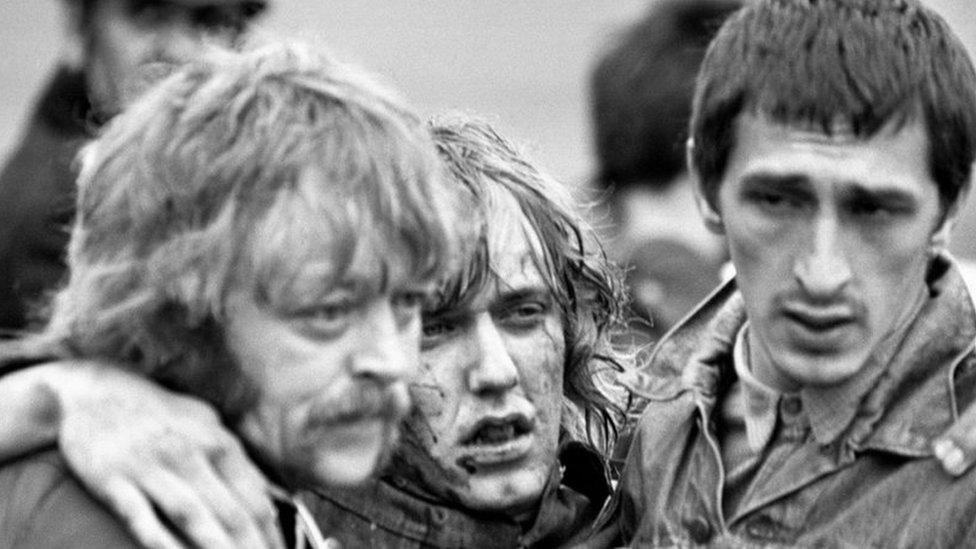'I'm back on the picket line, 40 years after the miners' strike'
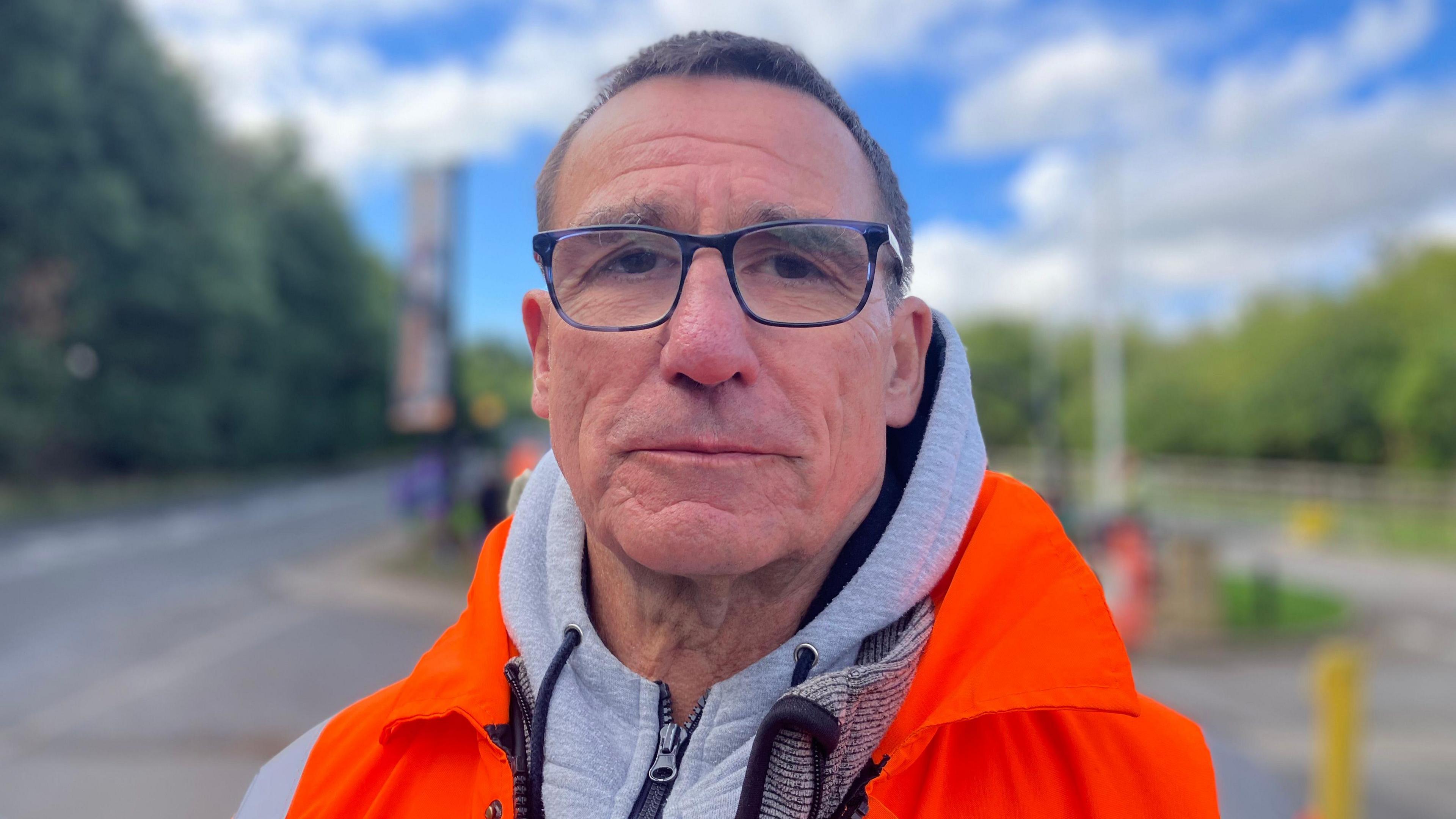
David Scott has urged museum bosses to return to the negotiating table
- Published
Since August, staff at the National Coal Mining Museum have been striking in a row over pay. Many of them are ex-miners, who have told the BBC how they feel about returning to the picket line more than 40 years after the strike of 1984-85.
"It will be over in a week, is what they used to say," says Russ Kear, recalling his time on the pickets.
He started work at Walton Colliery, formerly Sharlston West, in Wakefield when he was 16.
"We called it the family pit because my dad worked there."
Three years later, Russ was had walked out - joining his father and 187,000 miners across the country.
"Twelve months later I was still there."
The miners' strike of 1984-85 was one of the biggest industrial disputes in post-war Britain.
It pitted thousands of miners and their trade union against the Conservative prime minister Margaret Thatcher, who planned to shut 20 pits, threatening 20,000 jobs.
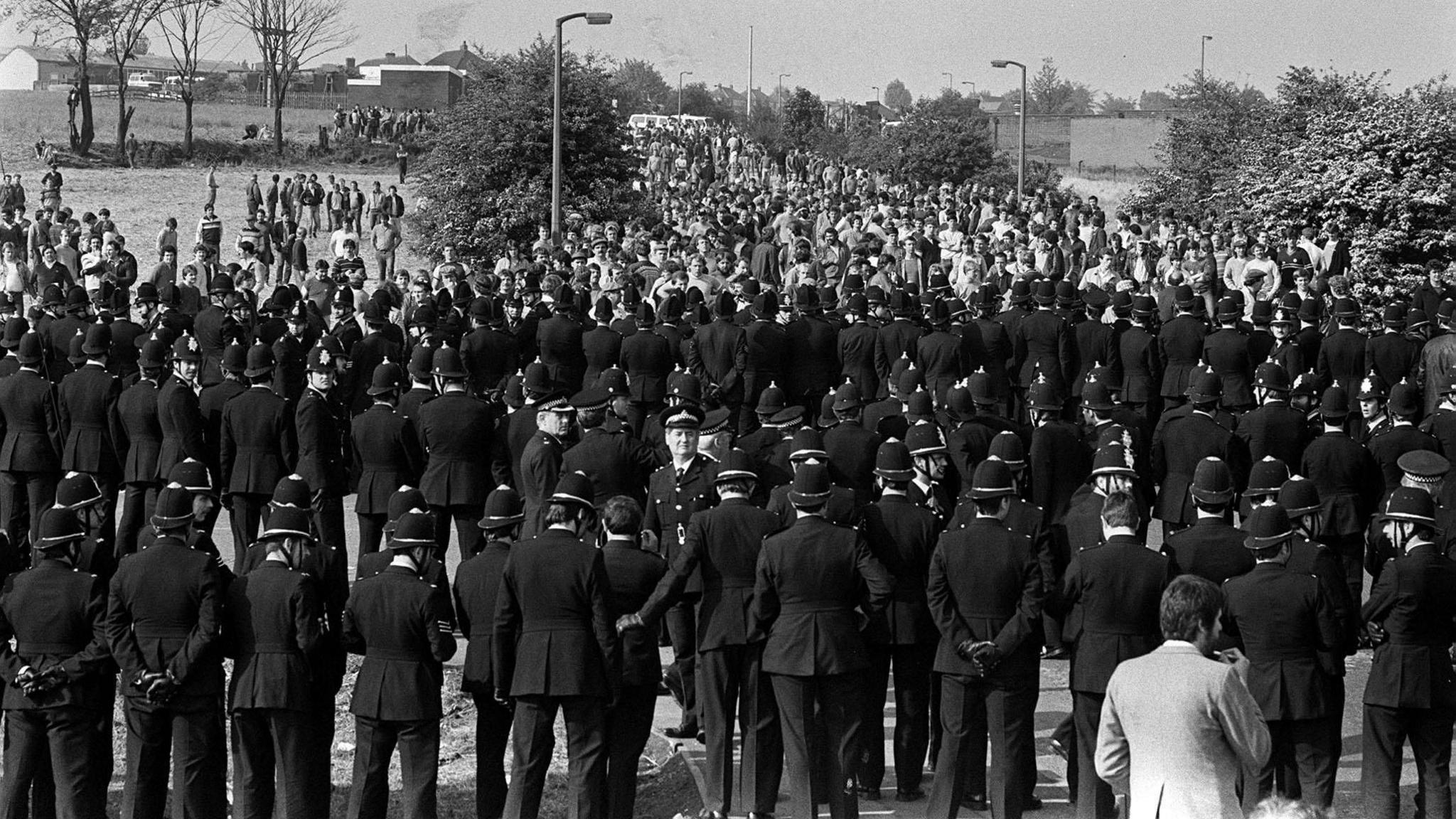
187,000 miners demonstrated over pit closures in 1984-85
"My mam did not work, so there was no money coming to our house," Russ tells the BBC.
"Houses were coal-fired so we had no heating, we went to the local club for a food parcel once a week, then to the community centre for a meal.
"It was horrible. I do not know how we managed."
Forty years on from the strikes of 1984-85, Russ is now one of several former miners who work as guides at the museum in Wakefield - sharing stories as he takes visitors on underground tours.
But, for now, those tours are on hold and Russ is back on the picket line.
His union, Unison, is not happy with the pay rise being offered to the guides - which it says is less than what was previously on the table.
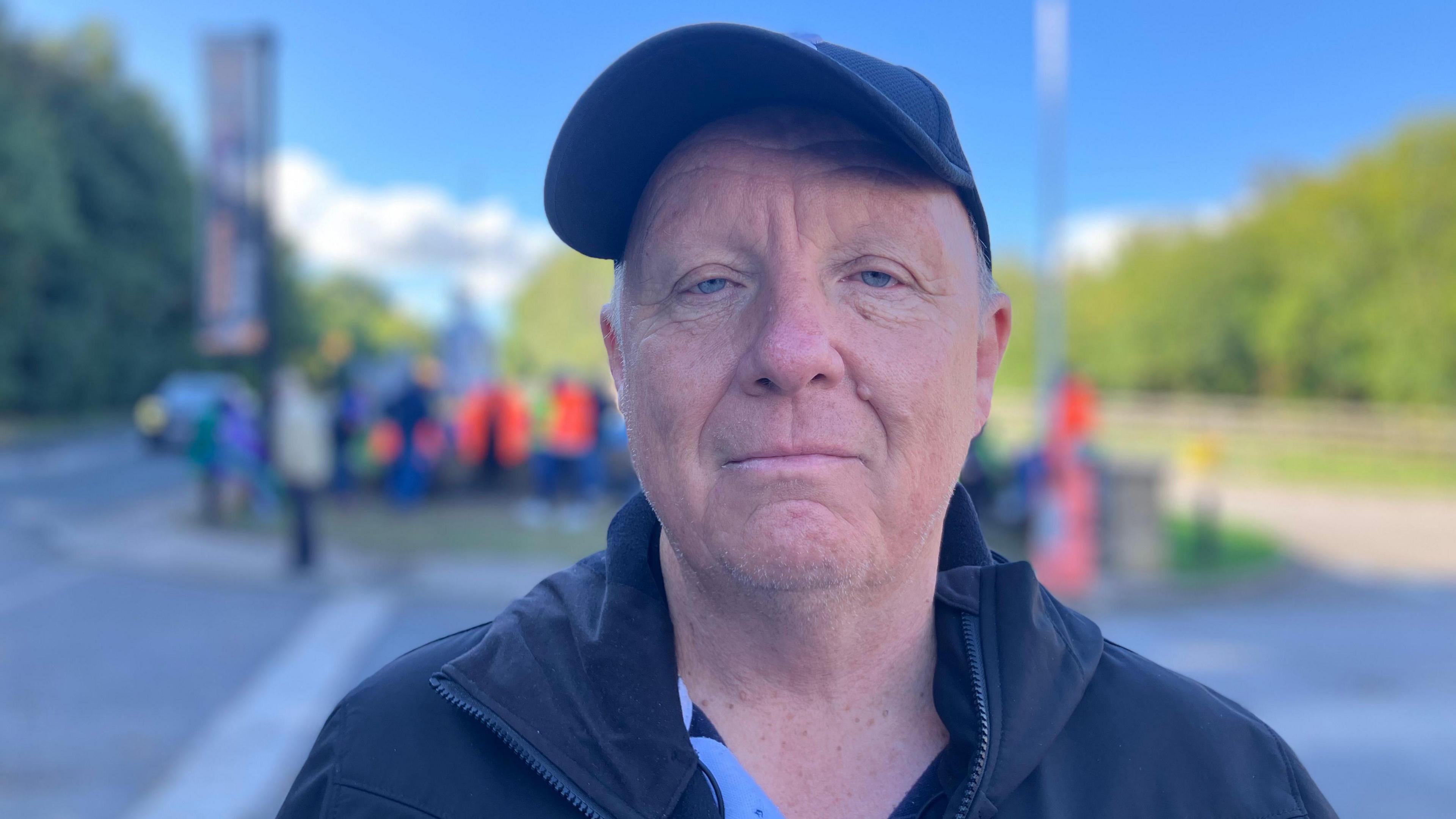
Russ Kear called the current pay offer "rubbish"
A spokesperson for the museum says trustees have approved a pay offer of either 5% or 80p per hour, whichever is higher.
"For many staff, this represents a total increase of over 6% this year, and more than 15% over two years," the museum said in a statement.
But the union claims the trustees had previously backed a higher offer of 5% or £1 an hour.
Russ calls the offer "rubbish" and wants his skills to be recognised.
"They employ at the café, recognise their qualifications and pay them as a chef but they do not recognise qualifications of skilled miners.
"We want a flat rate so we all go up the ladder together. This is like a family pit, we have worked together for a long time."
'We produce memories'
Approaching the National Coal Mining Museum, a banner tied to the boundary beckons visitors inside.
On that banner is the face of Russ Jones.
"We do not produce coal any more, we produce memories," Russ says.
"We do a lot of these jobs on goodwill. Because we want the best for this museum we will do almost anything."
Russ moved from mine to mine for 34 years before they were all eventually closed.
"I have been under threat of losing my job since I started," he says.
"Now I am at the museum wanting to pass my heritage on and we are in the same situation again."
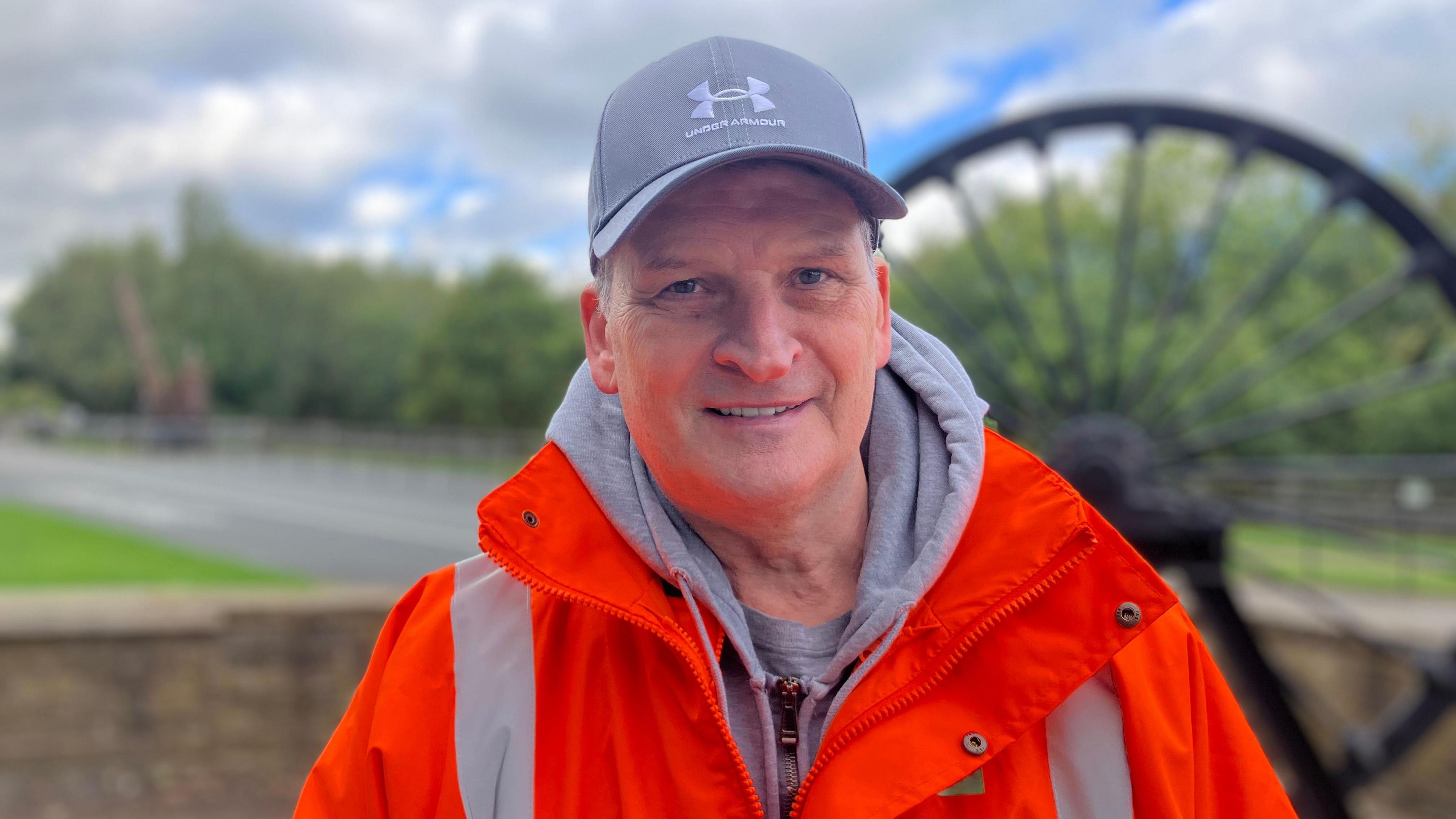
Russ Jones says staff at the National Coal Mining Museum have been "pushed into a corner"
Russ tells the BBC he is worried the row over wages could cause the National Coal Mining Museum to collapse.
He is not alone. Last week, councillors in Wakefield criticised museum leaders, saying the strike is putting the attraction "at risk".
At a meeting they voted to withhold funding for the museum until the dispute is settled.
The museum says it is "disappointed" by that decision, and would welcome the opportunity to talk to council members about the strike.
But museum bosses have also pointed out the council is not a "major funder" of the attraction.
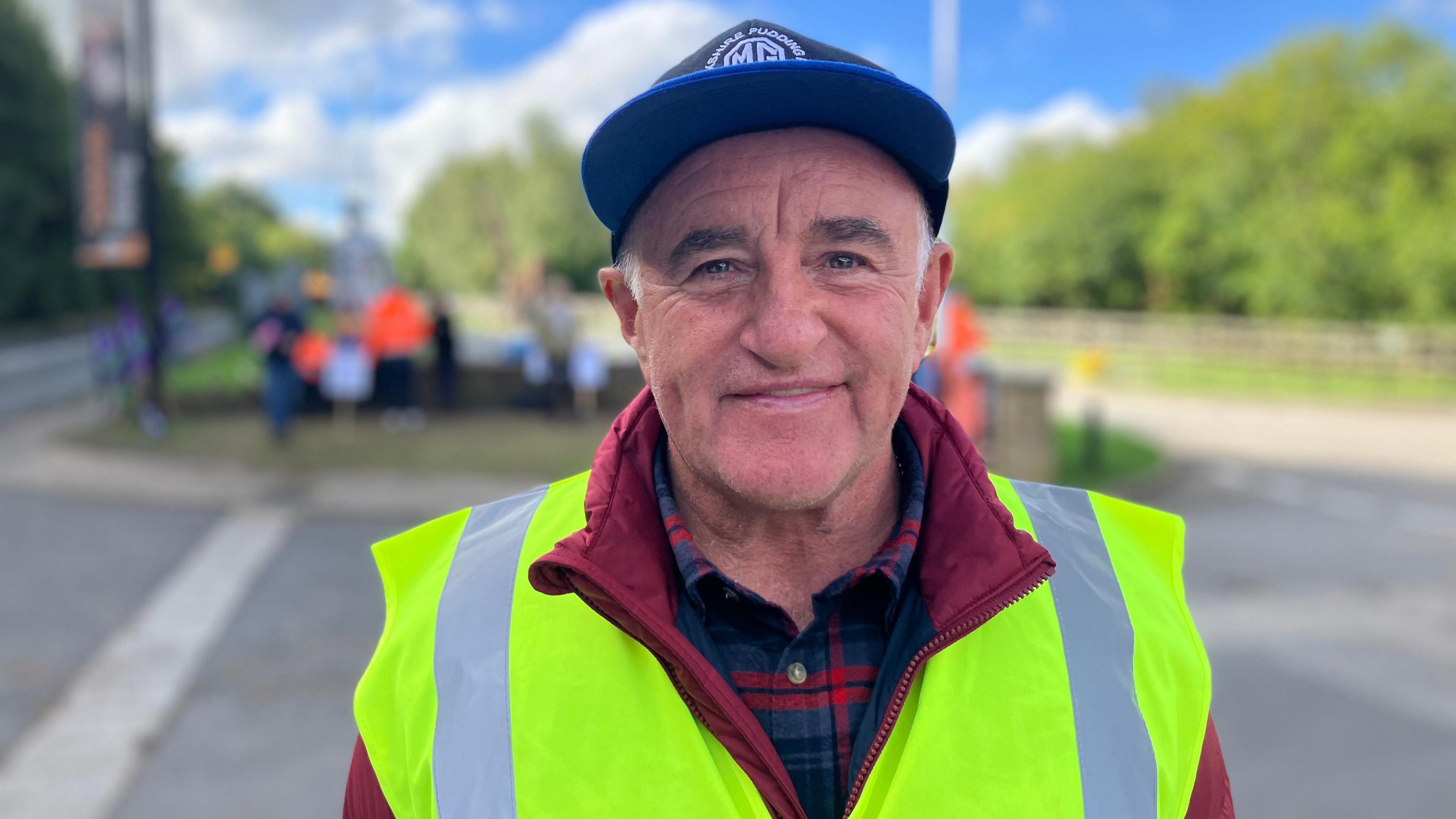
Alan Woodcock said he "could not believe" miners were striking again
Back on the picket line, Alan Woodcock recalls the first time he went down a mine.
"The first coalface I covered was only a couple of feet high. I crawled through water - conditions were really bad," he says.
Alan started working at Nostell Colliery near Wakefield in 1978 as an apprentice electrician.
"We are not just tour guides, we are fitters, electricians and train drivers," says Alan.
"When I came out on strike, it was political - they were battling police and people were getting injured.
"This is nothing like that but I cannot believe we are here. Sometimes you are pushed into a corner - we are on a pittance," he adds.
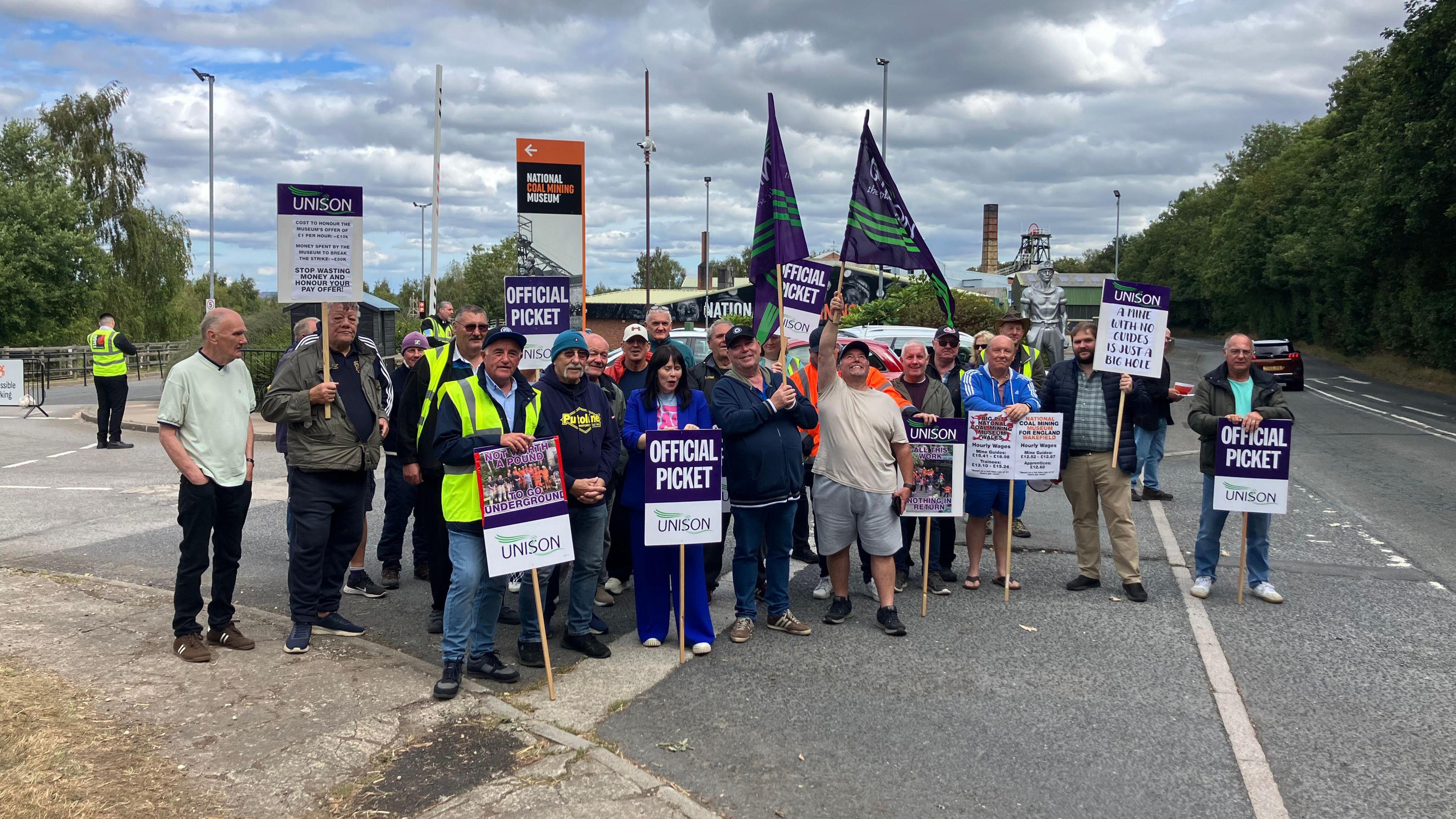
Unison members at the National Coal Mining Museum have been demonstrating since August.
The museum has told us it is "committed" to fair pay, pointing out that no member of staff is paid minimum wage.
A spokesperson has urged Unison to "engage in meaningful negotiations rather than unreasonable demands".
"Repeated action is damaging to the museum and its future," the spokesperson adds.
And that is one thing the ex-miners and museum bosses agree on.
"Nobody wants to be on strike like 1984 and especially not now. We can see the museum is suffering," says David Scott, who first went down the mines in 1977.
"I would just like them to get round the table. The only way to sort this is by talking."
Get in touch
Tell us which stories we should cover in Yorkshire
Listen to highlights from West Yorkshire on BBC Sounds, catch up with the latest episode of Look North.
Related topics
- Published25 September
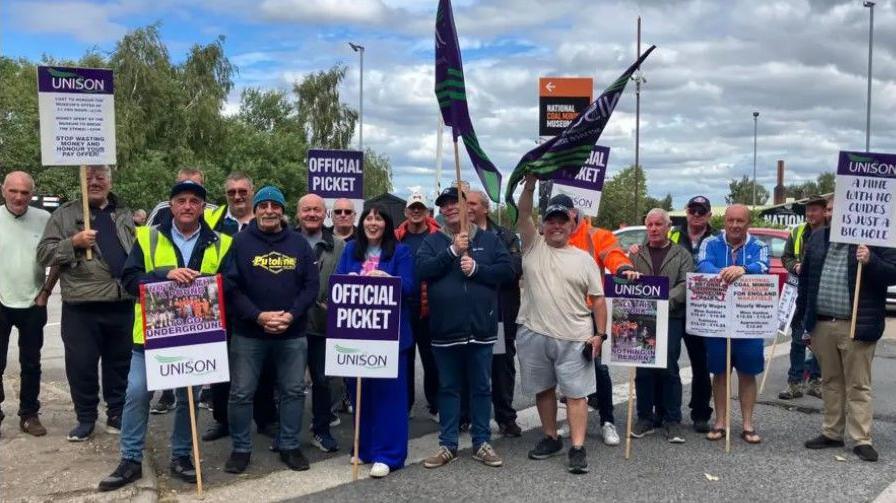
- Published2 March 2024
